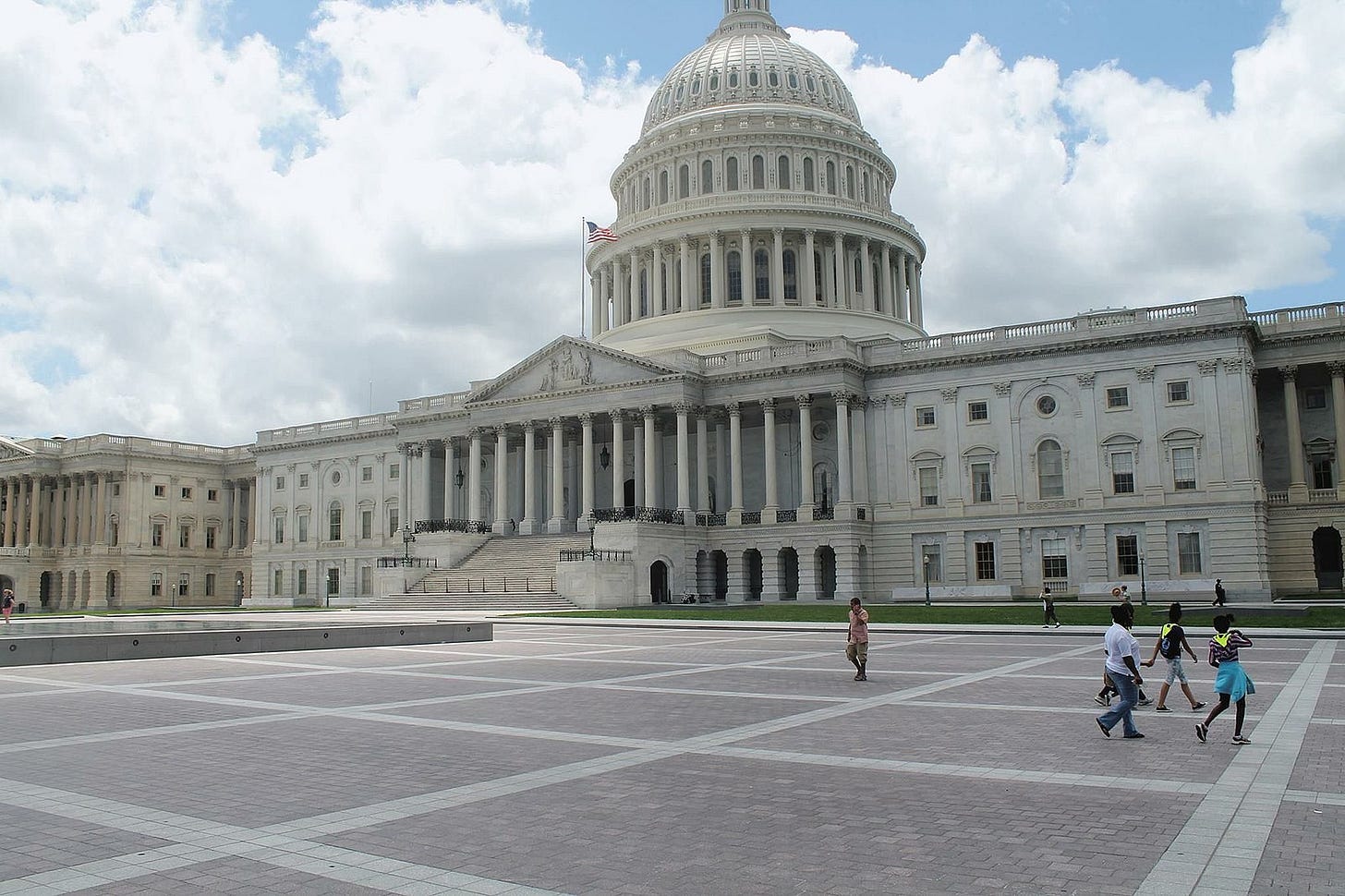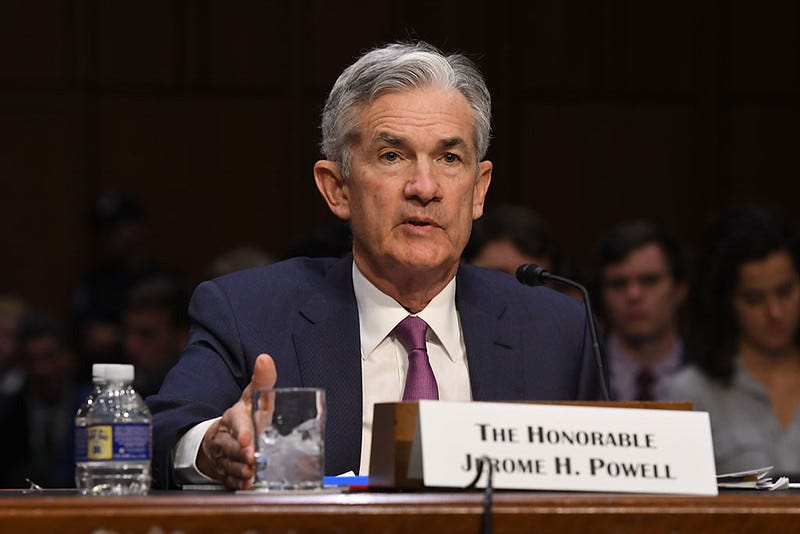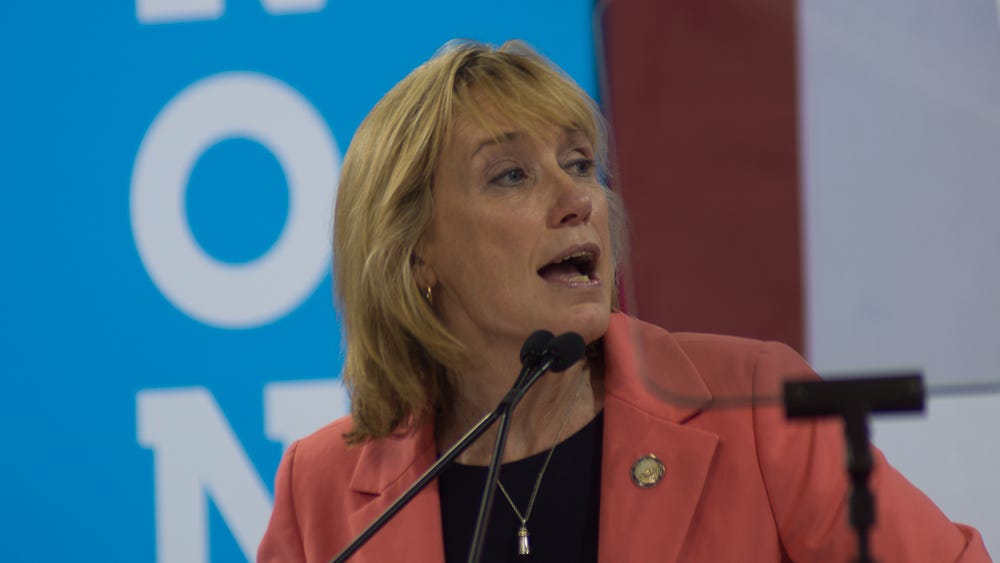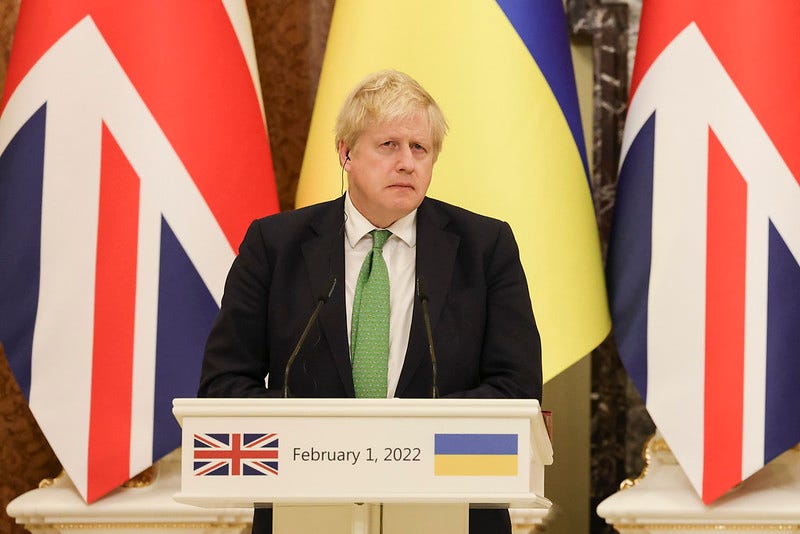Wake Up To Politics - February 16, 2022
Wake Up To Politics: Checking back in on Congress
by Gabe Fleisher
Good morning! It’s Wednesday, February 16, 2022. Election Day 2022 is 265 days away. Election Day 2024 is 993 days away.
Checking back in on Congress
Last week, I offered a guide to some of the substantive — but under-the-radar — activity that was going on inside Congress. The response was so positive from all of you that I want to try something similar again.
In last week’s version, most of the bills I flagged were bipartisan in nature, a theme that several other news outlets picked up on a few days later. This week, you’ll notice a fairly stark change: most of the issues advancing now have featured a heavy dose of partisan bickering, as both Democrats and Republicans return to their respective corners in the months before the midterms.
With that, here are the main issues that have seen progress on Capitol Hill in the past few days:
Funding the government. The most recent government funding measure, passed in December, is set to expire on Friday. Democratic and Republican negotiators announced a tentative deal on a spending framework last week, but it will take some time to finalize — so another stopgap funding bill (known as a “continuing resolution,” or a “CR”) will be needed by Friday to avoid a government shutdown.
The House passed a new CR, extending government funding through March 11, in a 272-162 vote last week. In the Senate, the CR would need to be fast-tracked to pass before the shutdown deadline, a process that requires unanimous consent from all 100 senators — but two groups of Republicans put up roadblocks.
Sen. Marsha Blackburn (R-TN) refused to let the CR advance without a letter from the Department of Health and Human Services rebutting reports in conservative media that a federal grant program for safe-smoking kits would include distribution of crack pipes. Blackburn received her letter on Tuesday, and she subsequently dropped her objection to the CR.
Another group of Republicans, led by Sen. Mike Lee (R-UT), has refused to grant consent to expedite the CR unless they receive a vote on an amendment that would strike down President Biden’s vaccine mandates for health care workers and federal employees.
Senate leaders expect to reach a deal on the matter as soon as today; most likely, Lee and his colleagues will receive get a vote on the amendment. “I think it will all be worked out,” Senate Minority Leader Mitch McConnell (R-KY) said Tuesday. “There’s no danger of a government shutdown.”
Advancing key nominees. After more than a year of the agency going without a permanent head, Senate confirmed Dr. Robert Califf to lead the Food and Drug Administration (FDA) on Tuesday. The vote was 50-46, with six Republicans backing Califf and five Democrats opposing him.
Califf faced Democratic opposition due to his ties to the pharmaceutical industry and criticism of his handling of the opioid epidemic during a previous stint at the FDA, which he also led in the last year of the Obama administration. His confirmation will fill one of several key public health positions that has gone vacant despite the pandemic.
Democrats had also hoped to advance Biden’s five nominees for the Federal Reserve Board on Tuesday, but Republicans boycotted a Senate Banking Committee vote, blocking the slate from moving forward. Republicans have objected to the nomination of Sarah Bloom Raskin to become the Fed’s vice chair for bank supervision.
GOP senators have raised questions about Raskin’s time on the board of Reserve Trust, Colorado payments firm. Reserve Trust received access to a Fed payment system during her tenure on the firm’s board; some Republicans have asked whether Raskin, a former Fed governor, helped obtain that access. Raskin has denied any impropriety.
Because the Republican members of the panel refused to attend Tuesday’s meeting over their objections to Raskin, all five Fed nominees were stalled, including the renomination of Jerome Powell as the Fed chairman. “Republicans have walked out on the American people,” said Sen. Sherrod Brown (D-OH), the committee’s chairman, accusing the GOP of slowing the Fed’s ability to address the soaring inflation.
Responding to Russia. The top Democrat and Republican on the Senate Foreign Relations Committee have been working for weeks on a package of sanctions to punish Russia over its troop buildup around Ukraine. At one point, they even made a rare joint appearance on CNN to hawk their efforts. On Tuesday, their talks fell apart.
The Senate did move forward with a symbolic unifying step: top leaders from both parties issued an open letter on Tuesday sending “a bipartisan message of solidarity and resolve to the people of Ukraine, and an equally clear warning to Vladimir Putin and the Kremlin.”
They may also move forward with a chamber-wide resolution sending a similar message. But it appears any possibility of a concrete sanctions package has fizzled, with the two sides unable to agree on how to handle the Nord Stream 2 natural gas pipeline. (Republicans wanted to go further than Democrats in sanctioning the pipeline, which will connect Russia and Germany.)
Without a bipartisan package in the offing, Republicans offered their own sanctions package on Tuesday, the Never Yielding Europe’s Territory Act, or the NYET Act (get it?) for short. The GOP bill would “take immediate action to permanently stop Nord Stream 2,” impose sanctions on major Russian banks and top allies of Russian president Vladimir Putin, and provide $500 million in military aid to Ukraine.
Addressing inflation. Finally, Democrats are preparing a slate of bills aimed at curbing inflation. Sens. Mark Kelly (D-AZ) and Maggie Hassan (D-NH), who both face competitive re-election races this November, have introduced legislation to suspend the federal gas tax (currently 18.4 cents per gallon) until the end of the year.
The effort to address inflation was the main topic at a private Senate Democratic lunch on Tuesday, as Democrats attempt to fend off GOP attacks over inflation in the midterms.
According to Roll Call, along with the gas tax suspension, Democrats are preparing bills aimed at “capping the cost of insulin and instituting antitrust regulations to break up monopolies in certain industries,” among other measures.
Watch for these pieces of legislation to see Senate floor action in March, after the chamber returns from the weeklong recess it is about to leave on.
January 6 investigation: “President Biden is opposing another effort by former President Donald J. Trump to withhold information from the House committee investigating the Jan. 6 attack on the Capitol, ordering the National Archives to hand over White House visitor logs the committee is seeking.” New York Times
Another Democratic retirement: “New York Rep. Kathleen Rice announced on Tuesday she will not seek reelection this fall, the latest in a string of Democratic members of Congress who have decided to retire or seek another office in a challenging political environment.” CNN
Ukraine crisis: “Russia is continuing its military buildup around Ukraine, the North Atlantic Treaty Organization’s secretary-general said, even as Moscow announced that it began drawing down some of its troops and released footage of tanks and armored personnel carriers being removed from the Crimean Peninsula.” Wall Street Journal
President Biden said Tuesday that a Russian invasion of Ukraine remains “distinctly possible,” despite the Kremlin’s claims of a drawdown. Biden also pledged to give negotiations with Russia “every chance to succeed” — WUTP’s global contributor Miles Hession has more on the diplomatic talks below.
Each morning, WUTP’s team of contributors rotate to offer a briefing on the latest news in a different policy area. It’s Wednesday, so Miles Hession is here with a look at the global arena:
As countdowns for imminent invasions have come and gone, and Russia has announced some troop withdrawals, diplomatic routes to solve the Ukraine crisis seem more open than ever.
While it is too early to say, and the situation could change rapidly, Russia and the West seem to be shifting away from military posturing and back to negotiations. Here’s a look from Miles at some of the key players involved in the talks and the diplomatic paths they’ve advocated:
The United States and the United Kingdom have each a hardline stance, refusing to grant any significant concessions to Russia about Ukraine joining NATO or the alliance leaving eastern Europe. Should Russia invade Ukraine, both countries have threatened harsh sanctions as retribution.
The Biden administration hopes that the threat of sanctions and “overwhelming international condemnation” will be enough to deter Russia, but has considered changes to certain security provisions under NATO as concessions to assuage Russia’s concerns about the security alliance.
Germany and Ukraine have sought to downplay the prospect of Ukraine’s joining NATO in the short-term, while maintaining long-term goals.
German Chancellor Olaf Scholz, in a meeting with Vladimir Putin earlier this week, sought an optimistic tone about the announced troop withdrawals and argued that Ukraine’s membership in NATO was not yet on the immediate agenda for the alliance. Scholz has been unwilling to abandon the controversial Nord Stream 2 pipeline, which the U.S. and U.K. have threatened to sanction.
Ukraine, similarly, has argued for the long-term, constitutional goal of Nato membership, but conceded that that membership would not be granted in the short-term. By downplaying Ukraine’s membership goals, it seems both countries hope to avoid immediate invasion and maintain a dialogue.
France has signaled much more ambitious diplomatic plans. The country’s president, Emmanuel Macron, has proposed a new European security framework that would integrate Russia, and has argued that NATO should not be viewed as an “eternal” institution.
Asserting that a hardline stance from the West will only push Russia and China closer together, Macron has called for more diplomacy and greater security incorporation with Russia. The push has earned him praise from Putin, who has described Macron as a “quality interlocutor,” and has placed the French leader at the center of European politics ahead of elections in his country later this year.
Macron’s plan would jeopardize Ukraine’s plans to join NATO, which would be a major concession to Russia, but has maintained assurances for Ukrainian sovereignty.

And then, of course, there’s Russia.
The Kremlin’s next steps continue to be difficult to ascertain, but Putin has maintained his desire to have his security concerns of an expanding NATO in eastern Europe met. While Russia announced further troop withdrawals, true de-escalation has yet to take place. While Putin has maintained he does not want war, an information war in Ukraine continues, and Russian separatists in Ukraine demanding recognition could still give Russia a pretext to overlook diplomacy in lieu of invasion.
With the NATO defense ministers meeting today, and with the rapidly evolving situation, the fate of Ukraine remains in the balance as different diplomatic routes will battle out, and Russia determines which path, if any, it deems fit.
All times Eastern.
President Joe Biden will receive his daily intelligence briefing at 10:15 a.m. He has no other events on his schedule.
Vice President Kamala Harris will join Biden for his 10:15 a.m. intelligence briefing. At 1:15 p.m., she will ceremonially swear in Cynthia Telles as the U.S. ambassador to Costa Rica. At 1:40 p.m., Harris will ceremonially swear in Reta Jo Lewis as the president of the U.S. Export-Import Bank.
White House press secretary Jen Psaki will hold her daily press briefing at 1 p.m.
U.S. public health officials will hold a press briefing at 11 a.m. on the federal Covid-19 response. Participants will include Dr. Rochelle Walensky, the CDC director; Dr. Anthony Fauci, the White House chief medical adviser; Jeff Zients, the White House Covid-19 response coordinator; and Dr. Tom Inglesby, the White House senior policy adviser for Covid-19 testing.
The Senate will convene at 10 a.m. and resume consideration of a pair of Biden nominees. At around 11:30 a.m., the chamber will hold cloture votes to advance the nominations of Celeste Wallander to be Assistant Secretary of Defense for International Security Affairs and David Honey to be Deputy Under Secretary of Defense for Research and Engineering.
At around 3:30 p.m., the Senate will vote to confirm both nominees.The House is not in session.
The Supreme Court is not in session.
That’s it for today. If you enjoy Wake Up To Politics, it’s always appreciated if you donate to support the newsletter or buy some merch. Or if you tell your friends and family to sign up at wakeuptopolitics.com.
If you have any questions or feedback, feel free to email me: my inbox is always open.
Thanks for waking up to politics! Have a great day.
— Gabe









